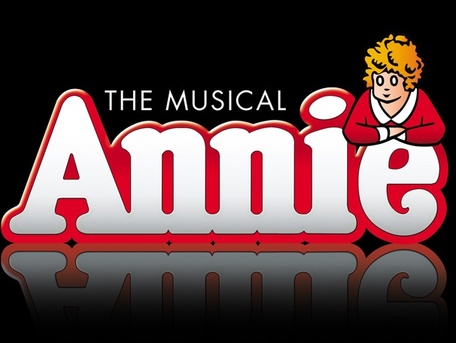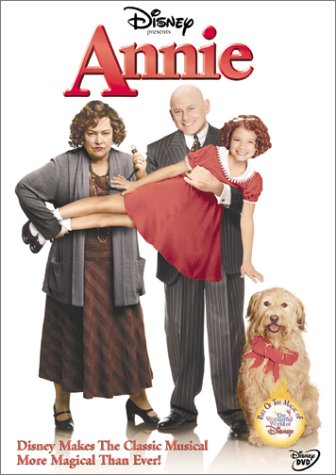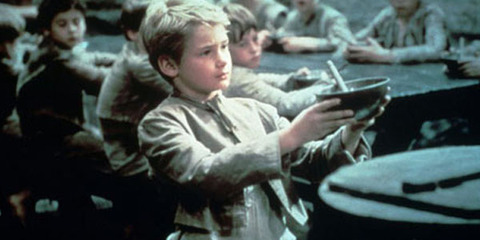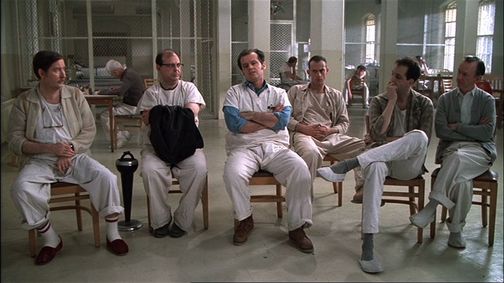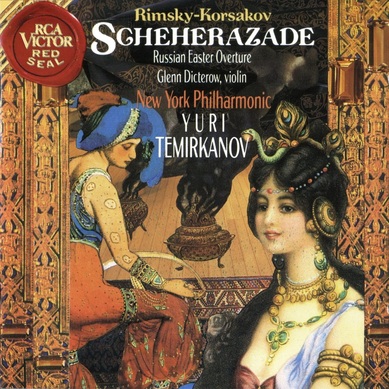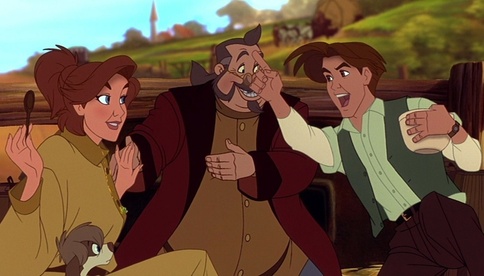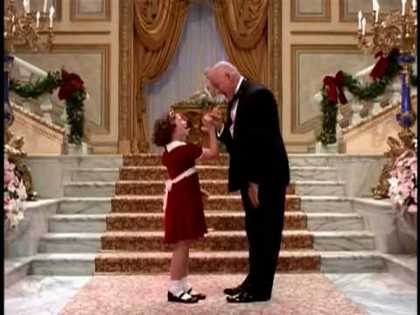Let's skip the original "Little Orphant Annie" poem, which was creepy in ways only 1880s cautionary tales can be. That would take a whole post of its own to explore. And we can skip over the comic strip, Little Orphan Annie, because it was written more for adults, and the radio show simply because I know next to nothing about it.
I'm talking about the musical so well known for introducing kids to Broadway that it's been adapted to screen by Disney.
So it's about a kid getting adopted. That can be a wonderful thing. The creepiness we find in that is mainly a product of our paranoid generation, and the real life horrors that do exist to fuel that paranoia are again more depressing than what this list was made for.
And why dwell on deliberate (if easy) misinterpretations of a story so teaming with intentional horror?
The whole setup for Annie is unabashedly Dickensian.
His godawful name can't be helping any with that either.
He's not actually planning to adopt Annie, he's only going to let her stay in his mansion for the holidays. After that, when the charity hype season is over, he's going to dump her right back where he got her from.
For reasons that are never fully explained, Annie just wants to spend the holiday hanging out with Mr. Warbucks, rather than enjoying the splendor of his home in the company of his far more welcoming and approachable servants.
Well, one possible reason occurs. Maybe Annie recognizes the opportunity to make a very powerful friend.
How could this possibly go wrong?
Whoever gets the money gets Annie, so once they've got both, they're going to throw her back in the orphanage, right?
No, she could escape and blow the whistle on them. They’re going to murder her.
They show us the knife.
To pull off an act of fraud, they are going to kill an eleven-year-old with a switchblade.
Okay, maybe that's not quite horror stuff, but it would be right at home in an ultra-dark action flick starring Liam Neeson.
As children, the children in stories are our heroes, protagonists, our figures for identification. They're people like us. And like people of any age, we like to see our protagonists face real stakes and real danger.
As we get older, we begin to see children as something separate from ourselves, fragile and sacred, something to be protected, and suddenly these fictional children in deadly danger are far more disturbing to us than the most horrific things that could happen to an adult cast.
It's the grown up authors who can bring themselves to put those fictional kids in peril who have the best chance of also being able to engage real kids in the story.
The same naturally goes for not coddling or condescending to fictional teenagers.
So that's my writerly soapbox moment this week.
Annie is the first story on this list to demonstrate this phenomenon, but it won't be the last.
Oh, she's fine, by the way. Annie. Her real parents are finally traced, they're dead, she comes to terms with the fact that she's always sort of known they'd have come back by now if they weren't, with the help of her new filthy rich family.
